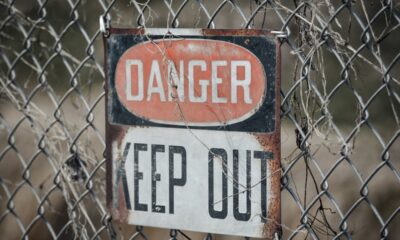Latest News
January 1, Offshore Wind Farms Facing Fresh Scrutiny
Wyatt’s Take
- RFK Jr. orders federal probe into wind farm effects on fishermen.
- New studies link turbine chemicals to health dangers.
- Popular sentiment and top officials turn against offshore wind projects.
While most talk about wind farms centers on sea life, the risks to America’s fishermen have gotten little notice. That’s changing fast as concern grows in Washington, and studies find toxic chemicals seeping from these projects into fishing waters.
Health and Human Services Secretary Robert F. Kennedy Jr. has called for a government investigation into offshore wind’s impact on workers and fishermen. He quietly told the CDC’s National Institute for Occupational Safety and Health to start this research in late summer, and the Surgeon General’s office is involved too.
The investigation was supposed to finish quickly, but it’s paused now due to the latest government shutdown. “Work on this report has been halted solely due to the Democrat-led shutdown,” said a Health and Human Services spokesman.
Studies on direct human health effects are slim. A 2011 review showed no direct proof that people living near wind turbines have health problems from noise, according to researchers. Still, new evidence is raising red flags. A recent University of Portsmouth study warned that metals from turbine parts may leak into the ocean, putting seafood and humans at risk. “The materials used to protect wind turbines from corrosion leach into the surrounding water, which could pose risks to ecosystems, seafood safety, and human health,” the report stated. “Offshore wind farms release thousands of [tons] of aluminum, zinc, and iridium each year.”
Professor Gordon Watson, part of that study, says wind can help reduce emissions—yet there’s little known on how these metals alter ocean environments over time.
Other findings deepen the worry. Community group Green Oceans recently flagged that wind turbine blades shed toxins and microplastics as they erode in the ocean. “Blades fail more frequently than previously recognized. A collapsed blade can scatter over 50 tons of PVC foam, PET, epoxy resins, forever chemicals (PFAs), styrene, formaldehyde, and phthalates into the ocean. These chemicals are associated with an increased risk of cancer, endocrine disruption, and immune system alteration.”
They go on: “Studies have found microplastics in marine mammal tissues and the human cardiovascular systems. Microplastics correlate with an increased risk of heart disease.”
Although much of the conversation has been about protecting marine creatures like the right whale, it’s the people whose jobs depend on clean, healthy waters that need a bigger say. Fishermen are on the front lines, facing the risks from what some call “clean energy” every day.
President Trump has criticized offshore wind, arguing it’s ugly and wastes taxpayer cash on failed projects. He’s been clear: if more reports confirm these health risks, fewer investors will want to pour money into wind farms—a financial reality Trump knows well.
Meanwhile, Bill Gates, once a loud climate activist, now says climate change “won’t lead to humanity’s demise.” Even those who once pushed hard for wind and solar seem to be moving on as tides shift.
Will Washington finally look out for working folks instead of chasing headlines? Time will tell.
Wyatt Matters
Protecting the health of those who put food on America’s tables is fundamental. Working families deserve clear answers about what’s in their environment and on their dinner plates. There’s nothing wrong with questioning projects that could risk lives or livelihoods, no matter how “green” they may look.

-

 Entertainment2 years ago
Entertainment2 years agoWhoopi Goldberg’s “Wildly Inappropriate” Commentary Forces “The View” into Unscheduled Commercial Break
-

 Entertainment2 years ago
Entertainment2 years ago‘He’s A Pr*ck And F*cking Hates Republicans’: Megyn Kelly Goes Off on Don Lemon
-

 Featured2 years ago
Featured2 years agoUS Advises Citizens to Leave This Country ASAP
-

 Featured2 years ago
Featured2 years agoBenghazi Hero: Hillary Clinton is “One of the Most Disgusting Humans on Earth”
-

 Entertainment2 years ago
Entertainment2 years agoComedy Mourns Legend Richard Lewis: A Heartfelt Farewell
-

 Featured2 years ago
Featured2 years agoFox News Calls Security on Donald Trump Jr. at GOP Debate [Video]
-

 Latest News2 years ago
Latest News2 years agoNude Woman Wields Spiked Club in Daylight Venice Beach Brawl
-

 Latest News2 years ago
Latest News2 years agoSupreme Court Gift: Trump’s Trial Delayed, Election Interference Allegations Linger